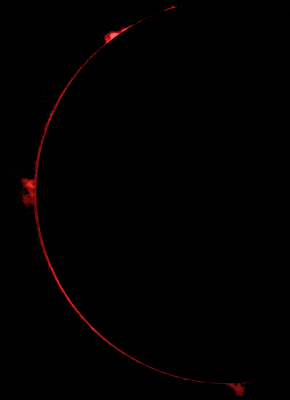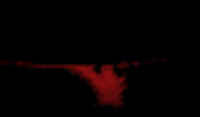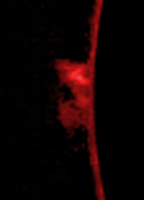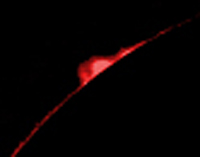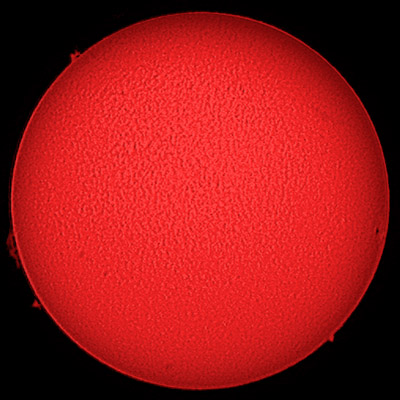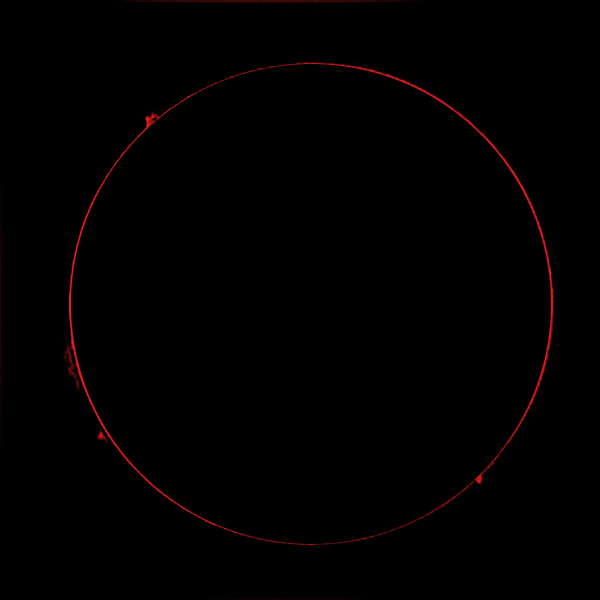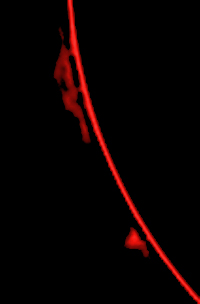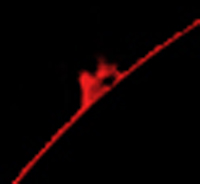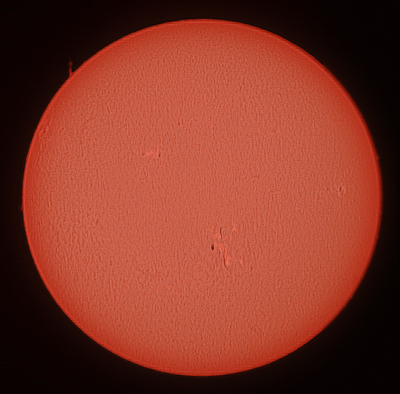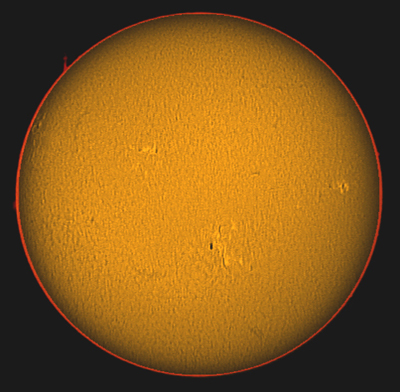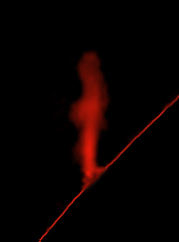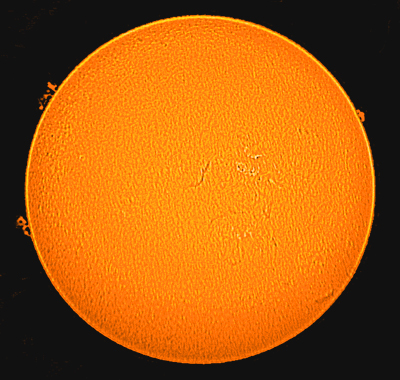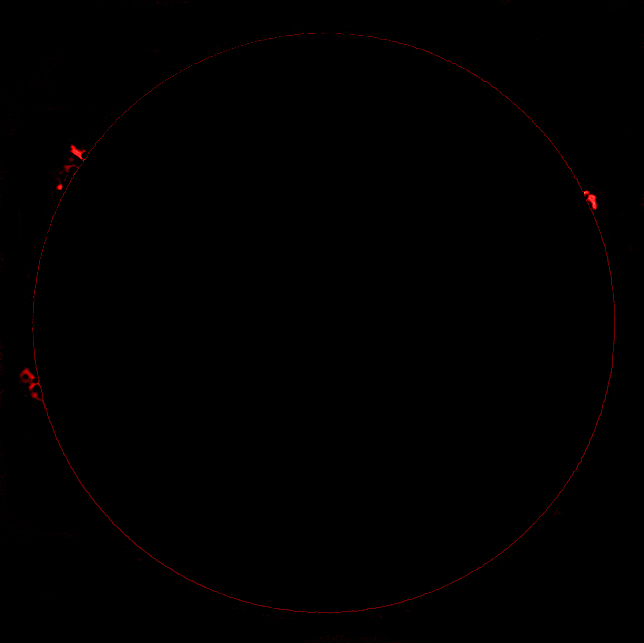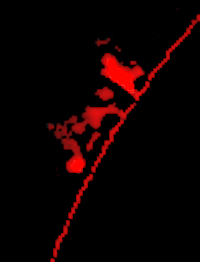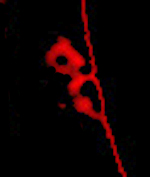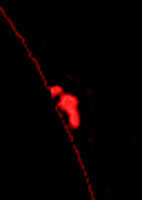Got myself a Coronado Personal Solar Telescope (PST)!
| 2005 | 2006 | 2007 |
| April, May, July | 2006 index page. |
2007 index page. |
|
|
April 23th 2005 The image on the
left shows some of the prominences on the 23rd
|
|||
|
|
April 25th 2005 I have processed the images to make the final picture look as close as possible to the view at the eyepiece, the learning curve is very steep. Registax was used to bring out the detail, four very exposed images to get the prominences and six to try to get detail in the disc. The dark spot just below 3 o'clock is a large sunspot just beginning its two week long traverse across the Sun. I am pleased with the prominences but I have overcooked the processing on the disc so the filaments, prominences seen against the disc, are not well shown although a faint but large one can be seen about 2 o'clock. |
|||
|
|
April 25th 2005 The image on the
left shows some of the prominences on the 25rd
|
|||
|
May 13th 2005 Tried to be a
bit more subtle today, anyone who knows me will know how difficult that
was. Just one reasonably sized prominence but a lot of detail on the
disc. I bracketed the exposures, two stops on either side of the auto
exposure and shot about 20 images at each setting at 1024x768 pixels so
that I could use Registax to align and process 20 images at a time, my
computer doesn't like more pixels. A home made remote shutter release
allows me to use the Nikon 950 in continuous mode, it just keeps
clicking away until the camera's memory buffer is full. |
||||
|
|
May 13th 2005 This is exactly
the same information,
just processed differently. A couple of hours after I took these images, the bright area just to the lower left of the large sunspot unleashed a massive solar flare. This outburst was actually seen live by some lucky people through a PST just like the one I use. Twenty four hours later there were some massive prominences, biggest I have seen, but of course, it clouded over. |
|||
|
|
May 13th 2005 This is a close up of the prominence at 10 o'clock. |
|||
|
|
May 26th 2005 These images were taken in a howling gale, I was afraid to leave my telescope set-up in case the whole lot blew over. As you can see from the differences between this image and the previous ones, I am still experimenting, and learning how to use Registax. About 28 images
were stacked to get the disc detail but I have to overexpose This processing method is very long and complex but it seems to have got rid of the "muddiness" which was present in the previous images. |
|||
|
|
May 26th 2005 The prominences are shown on the left, isolated from the disc with close ups below.
|
Back to Top of Page
Back to Updates The
hydrogen-alpha Sun in July.
